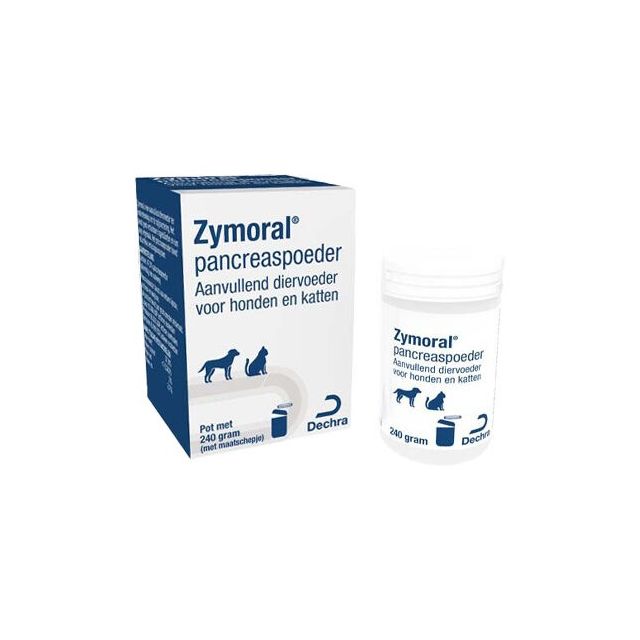Pancreatitis in cats
Pancreatitis, or pancreatitis, can have both an acute and more chronic course. Your cat can become seriously ill from this. Fortunately, an inflamed pancreas is usually treatable in most cases. Pharmacy4pets helps you better understand this condition and take good care of your cat with pancreatitis.
The pancreas of the cat
The pancreas or pancreas is a thin and flat organ that lies along the small intestine. The pancreas contains two important types of cells:
- The endocrine pancreas produces the hormones insulin and glucagon, which regulate blood sugar levels.
- The exocrine pancreas produces digestive enzymes that aid in the digestion of food.
How does pancreatitis develop?
In pancreatitis, the digestive enzymes produced by the gland are released prematurely: instead of in the small intestine, they are released in the pancreas itself. As a result, the enzymes digest the pancreas itself and the surrounding tissue instead of food. In many cases, the cause of pancreatitis cannot be determined, but possible causes include:
- Obstruction of the pancreatic duct.
- Inflammation of the liver, bile ducts, and/or intestines.
- Trauma, such as a fall from great height, injury, or abdominal surgery.
- Dehydration, low blood pressure.
- Increased levels of fat or calcium in the blood.
- Tumors.
- Use of certain medications.
Pancreatitis is usually NOT caused by viruses, bacteria, or an autoimmune disease.
Symptoms of pancreatitis in cats
Common symptoms of pancreatitis in cats include:
- Poor appetite.
- Nausea and vomiting.
- Abdominal pain.
- Lethargy.
- Fever.
Pancreatitis can also lead to diabetes. Symptoms of this include increased drinking and urination, increased appetite (although this is often not the case with diabetes as a complication of pancreatitis), and weight loss.
The symptoms of pancreatitis can be very acute and severe, but can also be milder and/or more chronic. Sometimes cats can even die from pancreatitis, but usually they recover completely, although some cats may continue to have chronic or recurrent pancreatitis. If diabetes develops as a result of pancreatitis, the cat often needs to be treated permanently.
Diagnosis of pancreatitis in cats
The results of blood tests often raise suspicion of pancreatitis. However, enzyme levels can also be elevated for other reasons. The diagnosis needs to be confirmed with an abdominal ultrasound.
Treatment of pancreatitis in cats
There is no medication for pancreatitis. The body must resolve the inflammation itself. However, the symptoms can be relieved to expedite recovery from pancreatitis. Because the cause is almost never a bacterium, antibiotics are not part of the standard treatment. Anti-inflammatory drugs are also usually not used. Treatment of pancreatitis in cats may include:
- Pain relief suitable for cats with pancreatitis.
- Medication for nausea and vomiting.
- Intravenous fluids.
In addition, it is very important for cats with pancreatitis to continue eating. In acute cases, placing a feeding tube may sometimes be necessary to provide the cat with sufficient nutrients. After recovery from acute pancreatitis or in the case of chronic pancreatitis, a palatable, easily digestible diet such as Sanimed Intestinal is usually very suitable. In dogs with pancreatitis, a low-fat diet is essential, but this is less important in cats. The most important thing in cats is that they eat.
If cats with pancreatitis also develop diabetes, treatment with insulin is necessary. Administration of pancreatic enzymes is occasionally useful, namely in the event of exocrine pancreatic insufficiency occurring as a complication of pancreatitis.
Cats with pancreatitis can be very sick. Fortunately, recovery from pancreatitis is usually good. If you have any questions about our products or about pancreatitis in your cat, please contact us.

